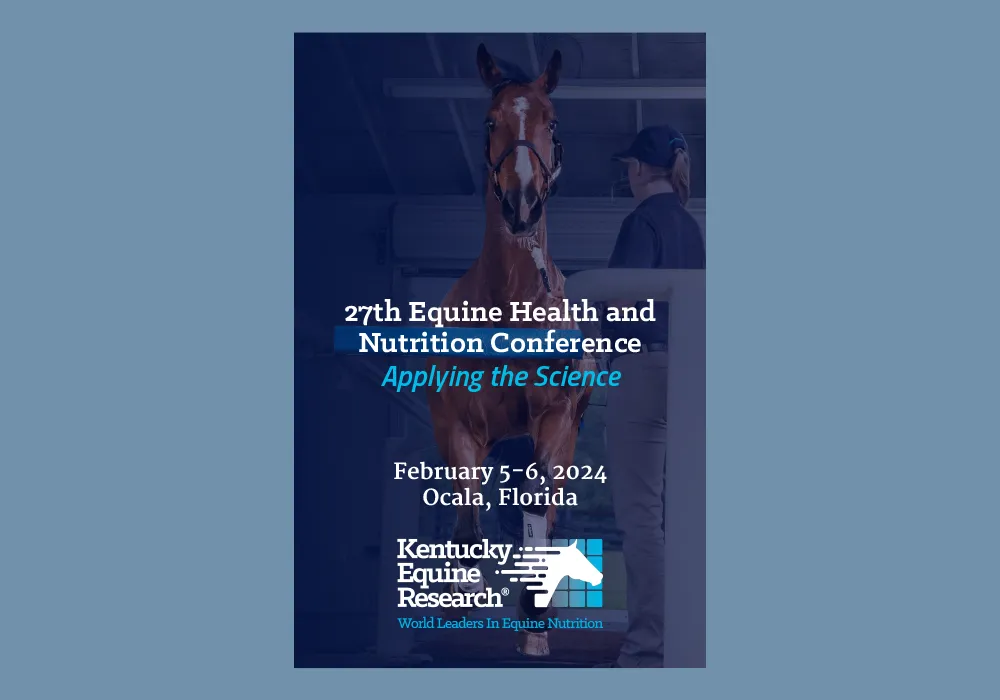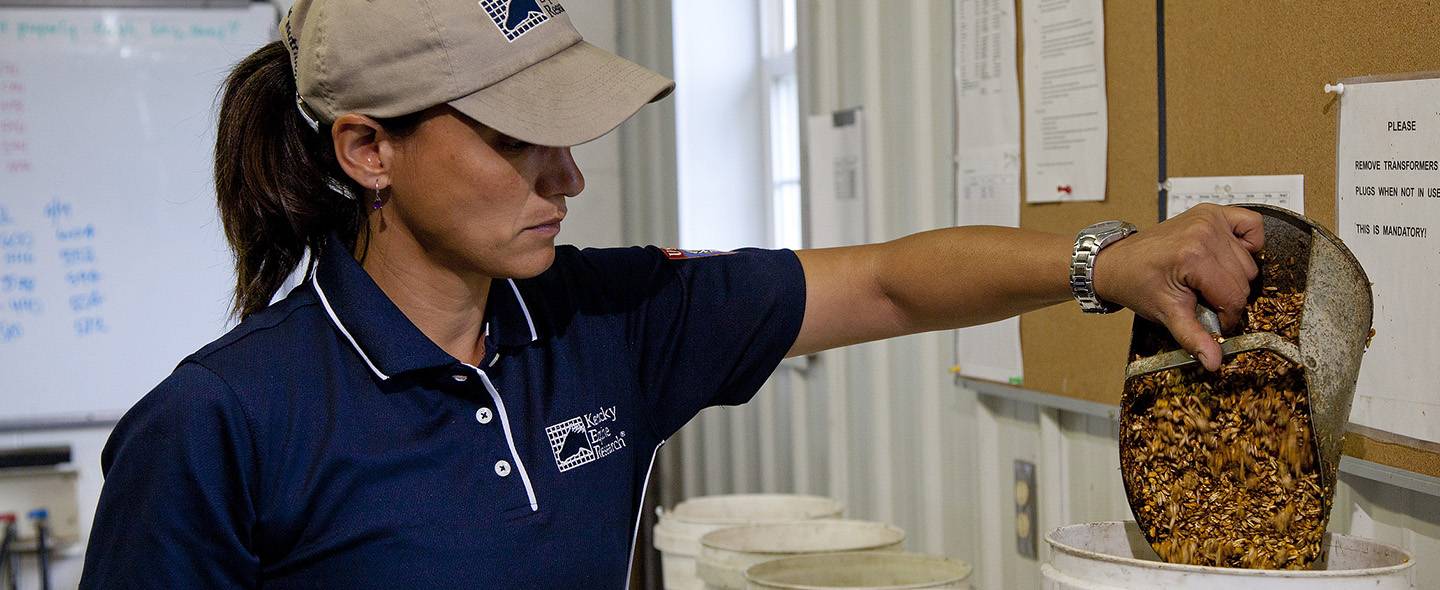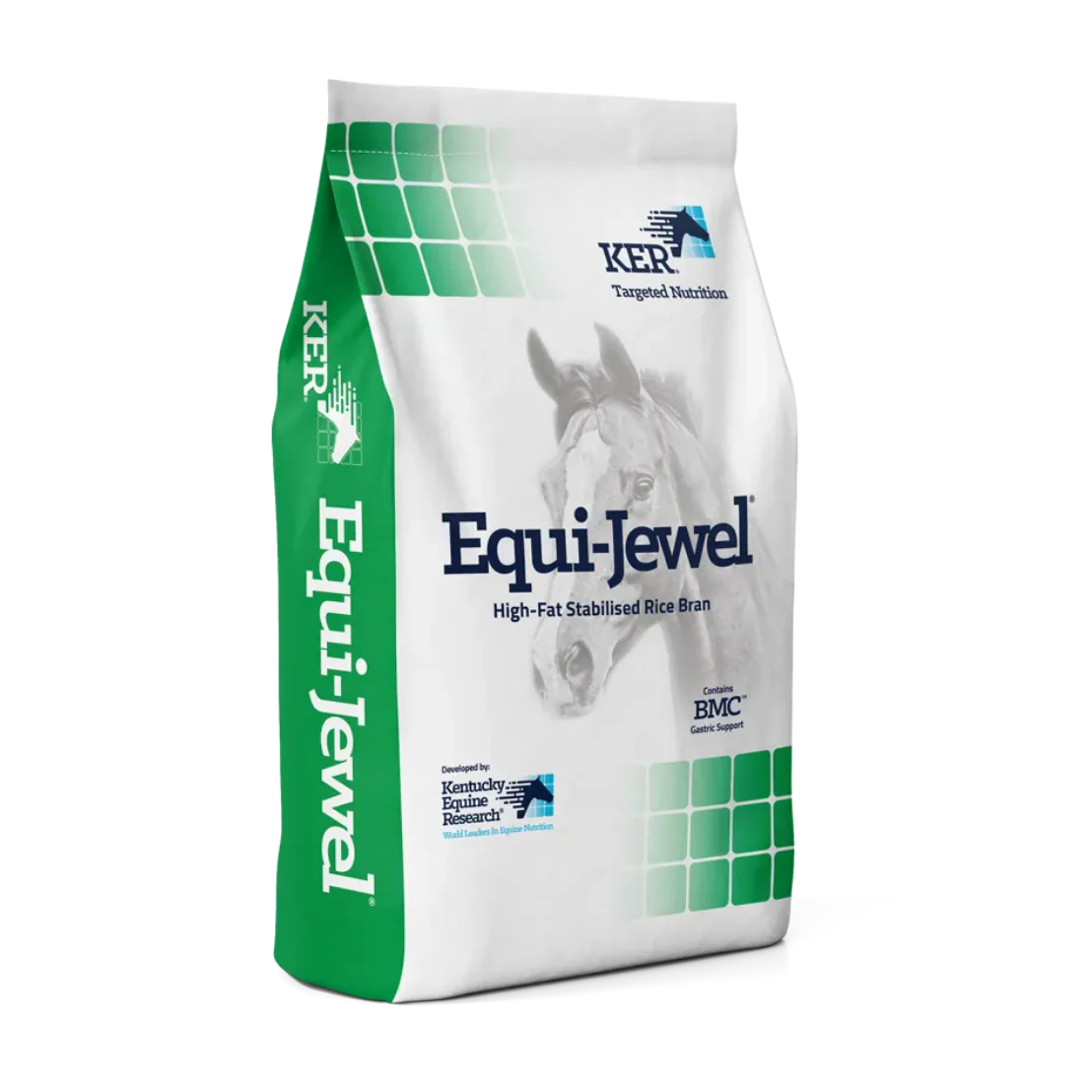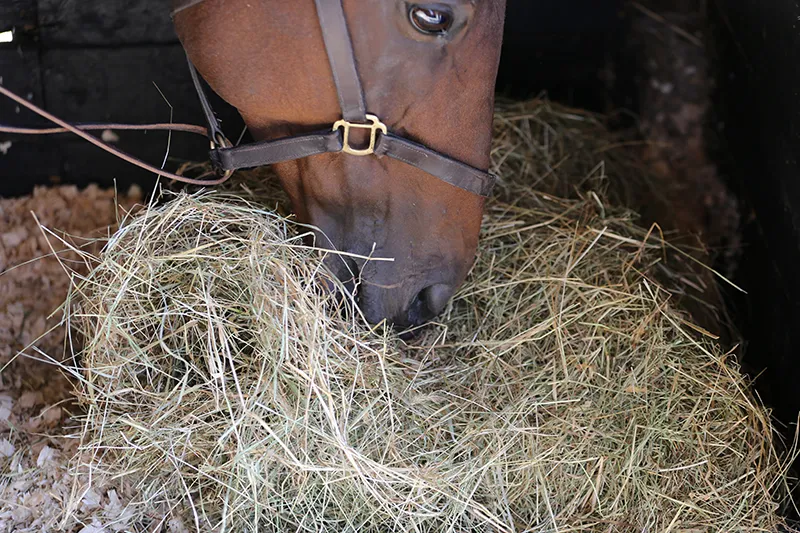latest research
Research studies and product development are ongoing continually at KER's two research facilities in Kentucky and Florida. Some of these findings are presented at industry conferences or share in peer-reviewed journals.
Articles
Insightful articles and posts about the latest Thoroughbred research
THOROUGHBRED GROWTH STUDY
For the past 35 years, Kentucky Equine Research (KER) has studied growth in Thoroughbred horses. They have analysed growth records from over 50,000 foals raised in prominent breeding regions around the world.
In 2022, we presented the findings of an international growth study, relating growth to skeletal soundness and sales and racing performance. Using the world’s largest set of growth records for young thoroughbreds, KER carried out a worldwide investigation into the relationship between the size and growth rates of foals and their racing career performance and came up with some intriguing findings.
Skeletal soundness is vital for racehorses; breeders pay particular attention to radiographic abnormalities that may affect a yearling’s sale price or racing career. Data collected by KER's partners in the US, Europe and Australia were analysed to assess whether size is significantly associated with radiographic findings, and how these measurements, alongside any regional, environmental and seasonal effects, are related to sales and racing performance.
The goals of these studies are:
- To identify at-risk foals earlier
- Modify feed and management practices to reduce problems
- Raise better racehorses
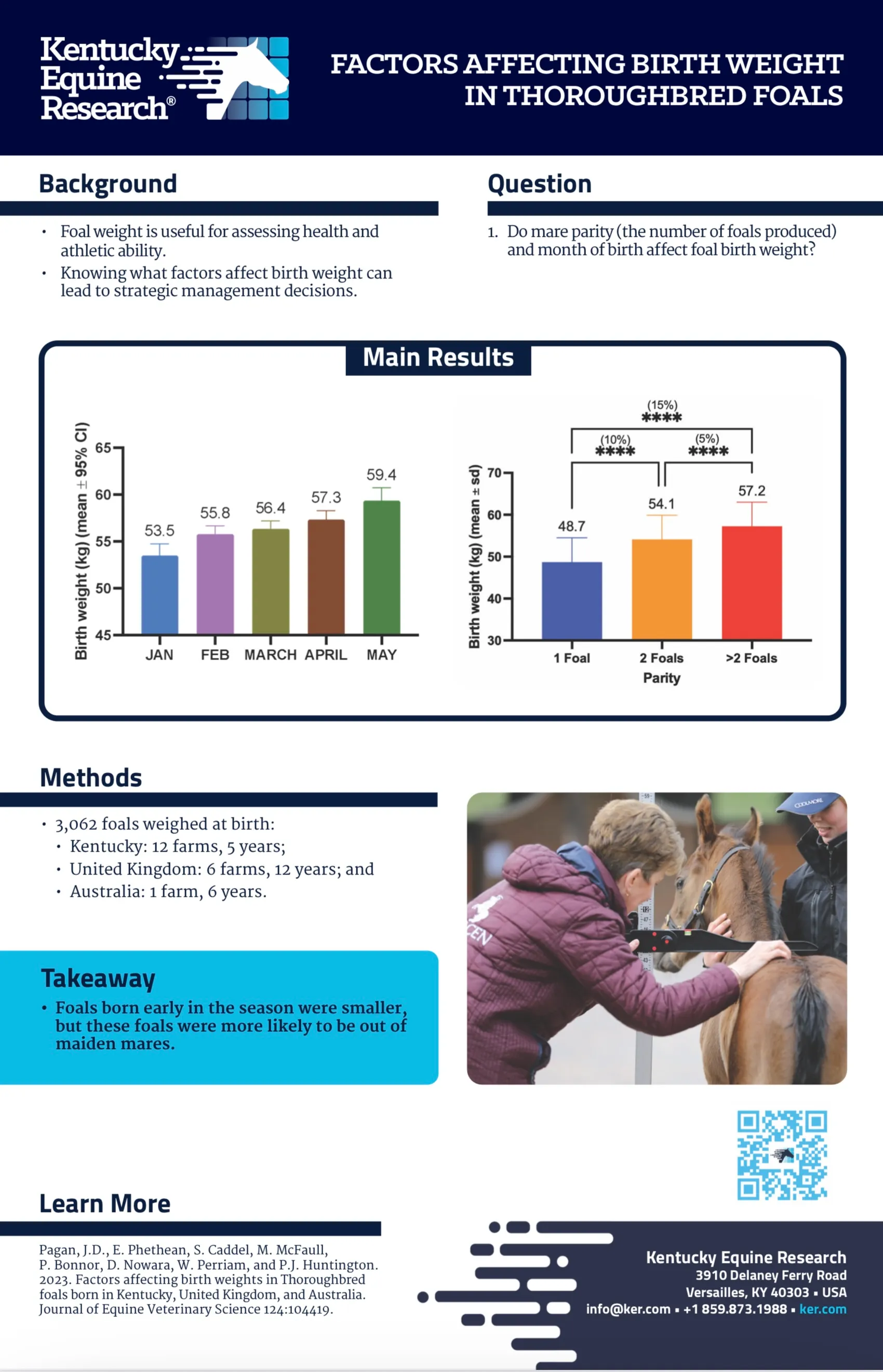
research ARTICLES
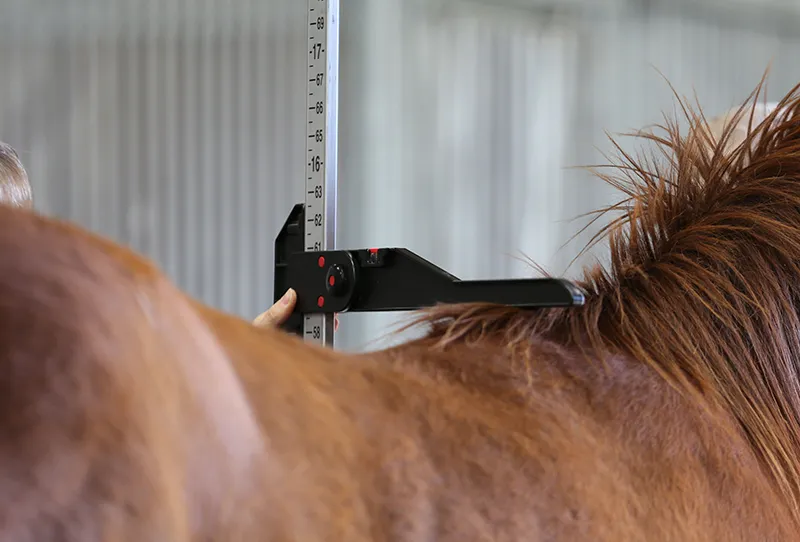
Study Links Foal Growth, Radiograph Data to Sales and Racing Performance
Building on three decades of research on growth and skeletal disease in Thoroughbreds, Kentucky Equine Research recently completed a pilot study to determine the relationship between growth, radiographic data, and performance, both in the sales ring and on the racetrack.
